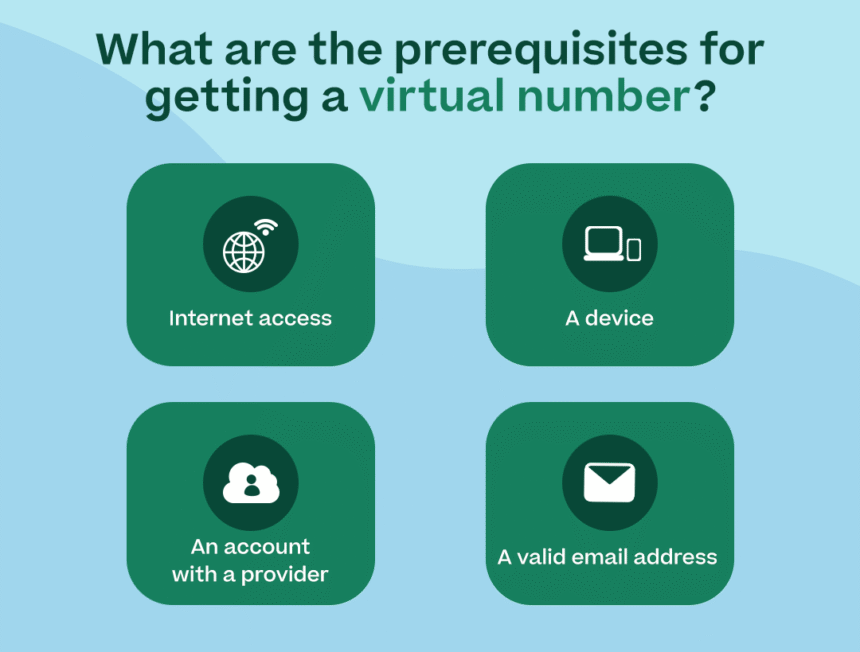If you’re managing multiple online accounts for work, crypto, testing, or privacy, you already know how difficult it is to register them all using your real phone number. In an era of surveillance, platform restrictions, and SIM-swap attacks, your personal mobile number just isn’t built for that. Fortunately, virtual numbers offer a clean, secure solution—especially when paired with cryptocurrency payments.
With providers like Telnum, you can get virtual numbers for SMS verification on dozens of platforms, without revealing your identity or personal details. Let’s break down how to use them effectively in 2025—and why they’ve become essential for online freedom.
Why Virtual Numbers Matter More Than Ever
The modern internet is built around identity. Every app, exchange, or service asks for a phone number—linking your mobile device to your online activity. This sounds convenient, until it isn’t:
- You’re limited to one account per number
- Your number becomes a marketing target
- You’re vulnerable to SIM-swapping or phishing
- You can’t register anonymously for testing or crypto services
Virtual numbers solve these problems. They’re cloud-based numbers that can receive SMS and calls online, from any device. And when you pay for them using crypto, you don’t even need to share financial data.
Multi-Platform Use Cases for Virtual Numbers
1. Crypto and Finance Accounts
Want to test multiple exchanges? Open accounts under different aliases? Protect yourself from identity leaks? Virtual numbers let you register for platforms like Binance, Kraken, OKX, and Gate.io with ease—especially when using permanent numbers that support 2FA.
2. App Testing and Development
If you’re in QA, app development, or affiliate marketing, you often need to test onboarding flows on apps that require SMS verification. Virtual numbers allow you to sign up repeatedly across regions, without running into platform blocks.
3. Social Media and Email Management
Need multiple Gmail, Telegram, or WhatsApp accounts? Each one needs a separate phone number. Virtual numbers give you scale and privacy without buying dozens of SIMs or burner phones.
4. Remote Work or Freelancing
International clients often expect a local number, or services require local verification. Virtual numbers give digital workers access to phone verification in any country—no matter where they’re physically located.
5. Account Recovery Redundancy
Sometimes you lose access to an email or password, and your phone number is your only recovery method. By using virtual numbers across key accounts, you can separate recovery paths and avoid being locked out if one number is compromised.
How to Use Virtual Numbers Across Multiple Platforms
Step 1: Choose a Reliable Provider
Look for a service that offers:
- Permanent and temporary numbers
- Multiple country options
- Fast SMS delivery
- Crypto payments
Telnum ticks all these boxes with transparent pricing and strong support for crypto users.
Step 2: Pick the Right Number Type
- Temporary numbers are good for short-term tasks like account testing.
- Permanent numbers are ideal for long-term use, including password resets and 2FA.
Step 3: Select Compatible Platforms
Here are some platforms where virtual numbers can be used for registration:
- Crypto: Binance, KuCoin, OKX, Bybit
- Email: Gmail, Outlook
- Social: Facebook, Telegram, WhatsApp
- eCommerce: Amazon, eBay, Shopify
- Others: Uber, PayPal, Airbnb
Check the platform’s support docs to ensure they accept the country code you’re selecting.
Step 4: Register and Verify
When registering, enter the virtual number during the phone number step. You’ll receive the verification code via your dashboard or email. Enter it to complete setup.
Step 5: Document and Backup
If you’re managing multiple accounts, keep a record of:
- Platform
- Login email or alias
- The virtual number used
- Expiration date (if temporary)
Using a password manager with secure notes can help.
Benefits of Using Virtual Numbers for Multi-Platform Setups
✅ Scalability – You’re no longer limited by your personal number.
✅ Anonymity – Use different numbers for different identities.
✅ Security – Avoid SIM-swaps and leaks tied to one number.
✅ Convenience – Rent and manage everything from one dashboard.
✅ Crypto-Friendly – No banks or cards needed.
Things to Watch Out For
- Free/shared numbers are often blacklisted. Use private or dedicated numbers.
- Some services may block VoIP or virtual numbers. Check user reviews or test with one first.
- Don’t recycle numbers too soon if you need future access (e.g. 2FA or recovery codes).
- Always follow the platform’s terms of service to avoid account bans.
Bonus Tip: Use Email + Virtual Number Combos
For maximum separation and control, pair each virtual number with a separate email alias. You can use services like ProtonMail or custom domain emails to keep identities distinct. This is especially useful if you manage projects, run multiple personas, or test services on behalf of clients.
Final Thoughts
Virtual numbers are no longer just a niche tool—they’re a core part of the privacy stack for developers, crypto users, marketers, and anyone managing multiple online identities. Whether you’re building secure accounts, testing platforms, or navigating strict KYC policies, virtual numbers offer unmatched control.
When combined with cryptocurrency payments, they eliminate traditional barriers—no SIM cards, no paperwork, no tracking. In 2025, this is exactly the kind of flexibility modern users need.
Start with a provider like Telnum and experience a smoother, safer way to register across platforms—without giving up your privacy.







